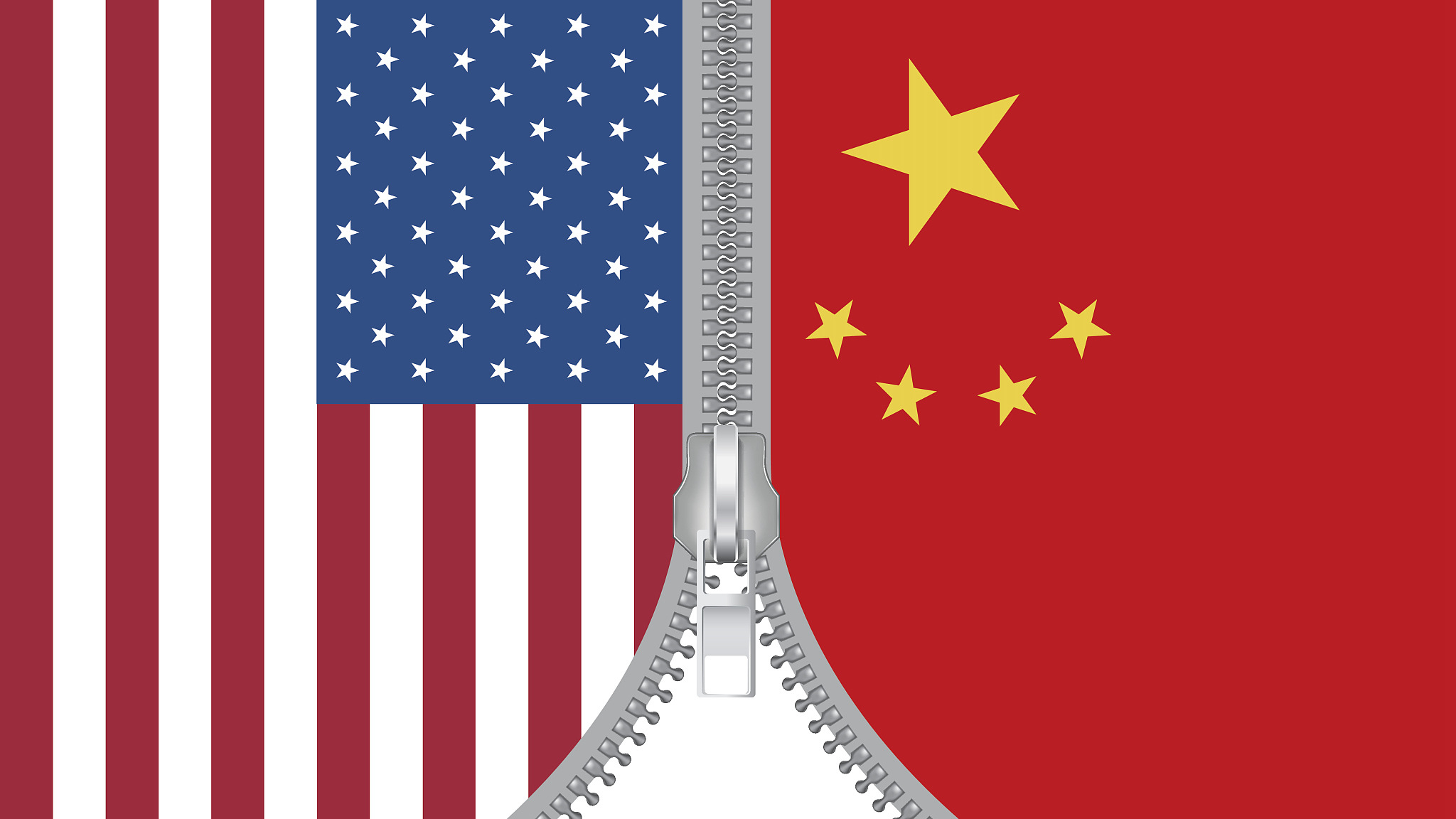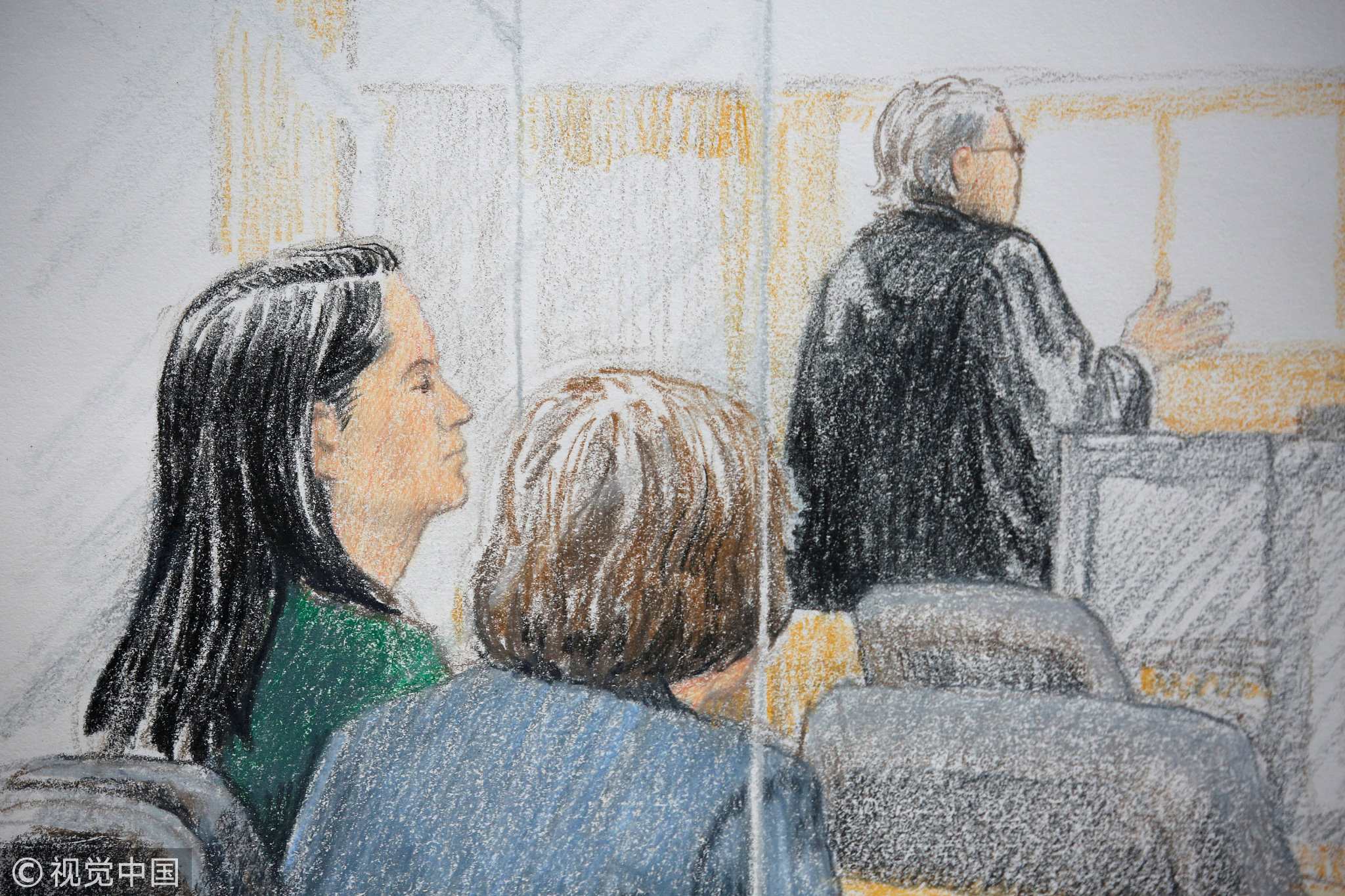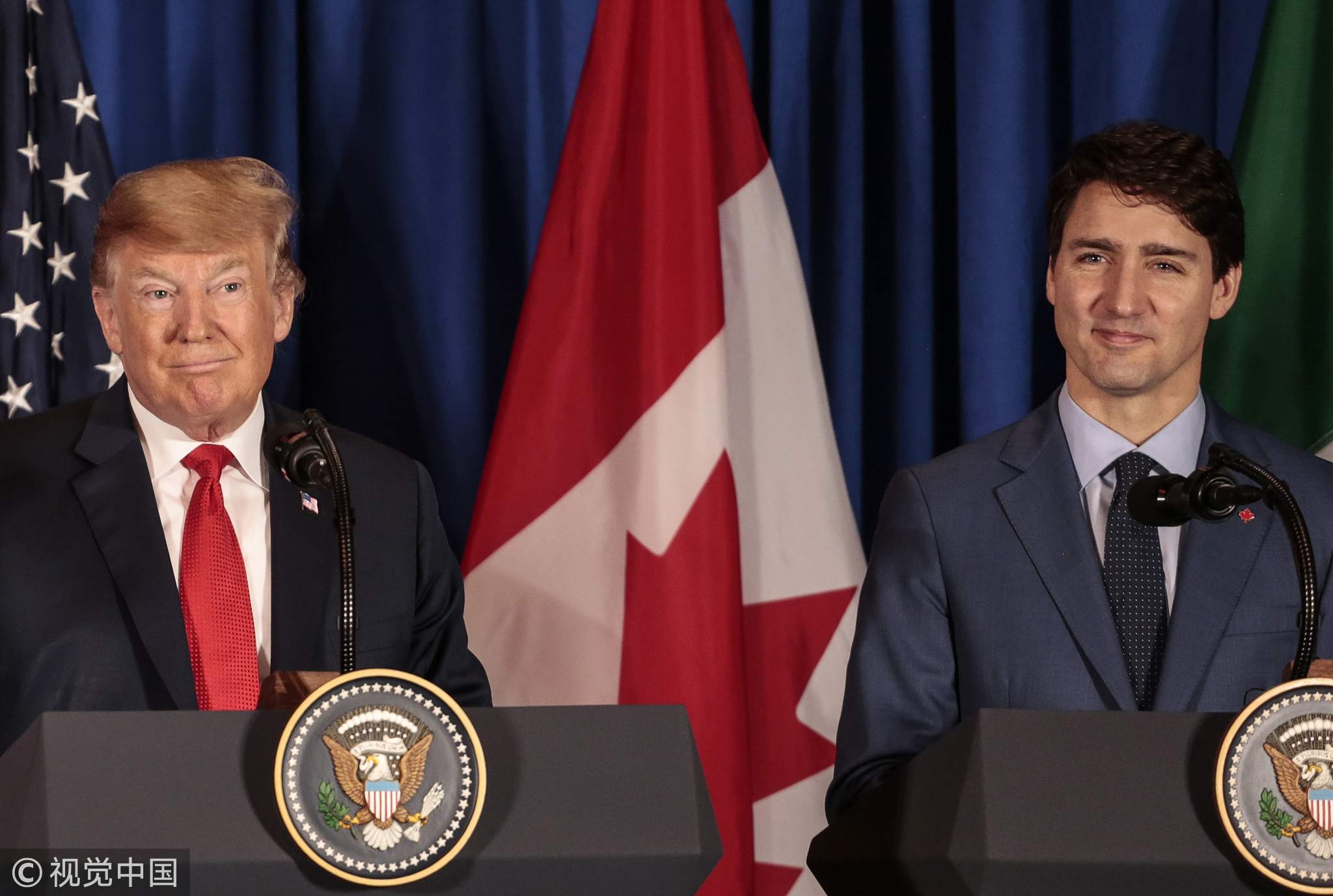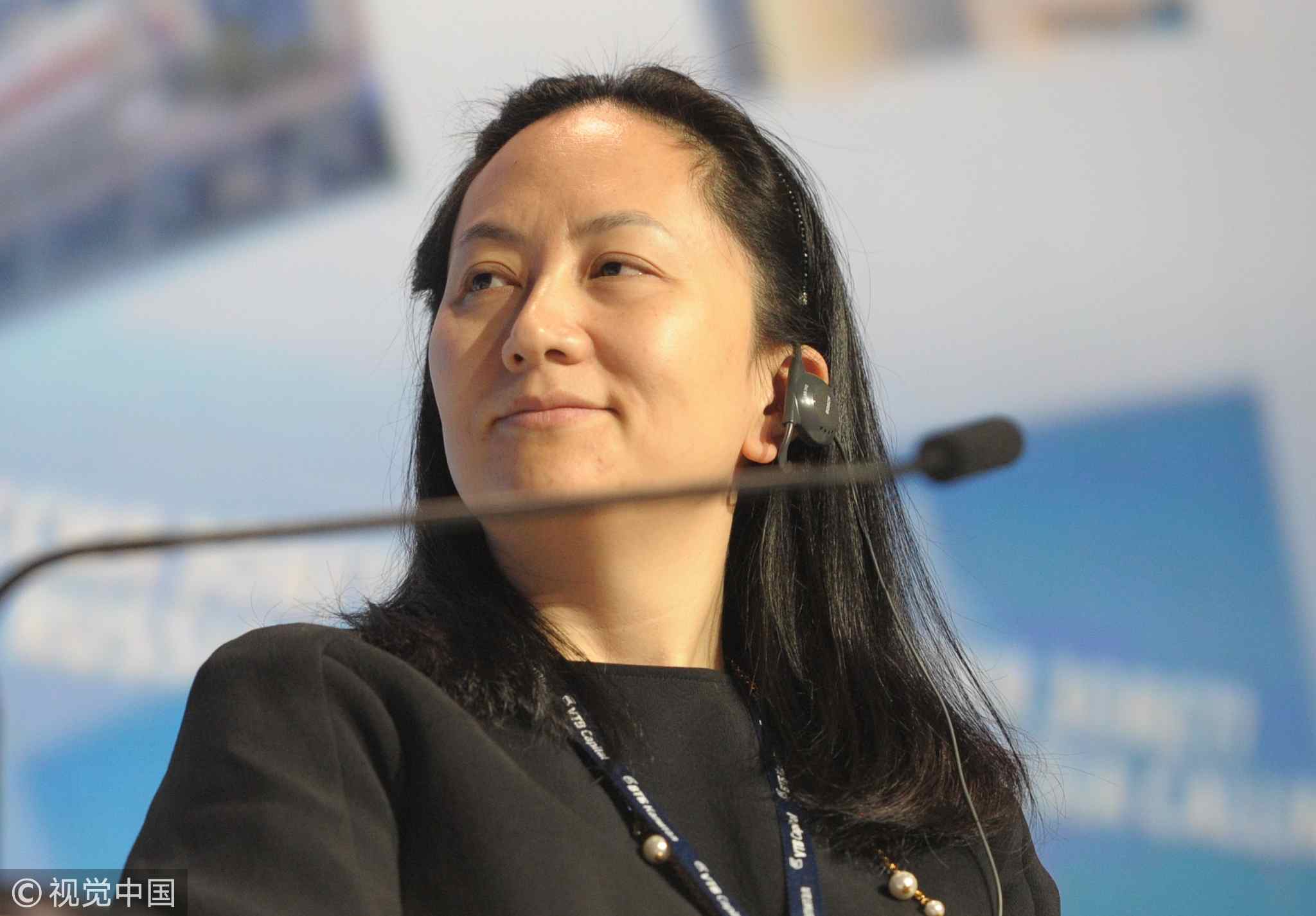
Opinions
10:46, 10-Dec-2018
Opinion: Meng's arrest puts U.S.-China relations in a bind
Updated
10:01, 13-Dec-2018
Ken Moak

Editor's note: Ken Moak, who taught economic theory, public policy and globalization at university level for 33 years, co-authored a book titled "China's Economic Rise and Its Global Impact" in 2015. The article reflects the author's opinion, and not necessarily the views of CGTN.
The Dec. 1 truce reached between U.S. President Donald Trump and Chinese President Xi Jinping was hailed as a “breakthrough” in the U.S.-China trade war and a rekindling of the strained relationship between the two nations.
On the same day, however, Canada arrested Meng Wanzhou, the chief financial officer of Huawei, China's largest telecommunications equipment manufacturer, at Vancouver airport at the behest of the U.S. on allegations that the firm breached American sanctions on Iran.

In this courtroom sketch, Huawei CFO Meng Wanzhou (L), sits beside a translator during a bail hearing at British Columbia Supreme Court in Vancouver, British Columbia, Canada, December 7, 2018. /VCG Photo
In this courtroom sketch, Huawei CFO Meng Wanzhou (L), sits beside a translator during a bail hearing at British Columbia Supreme Court in Vancouver, British Columbia, Canada, December 7, 2018. /VCG Photo
According to news reports, the U.S. side did not provide any credible evidence to prove the accusations were true. Huawei denied any wrongdoing, issuing a statement that the company complied with UN, U.S. and EU sanction laws.
China appears to be “taking off the gloves,” calling the arrest a “kidnapping” that violated the rights of Ms Meng and demanding that Canada releases her immediately or face unspecified “severe consequences,” though exactly what they are is unclear. But the situation could lead to a further deterioration of trade and diplomatic relations between China and Canada.
Canada is put in an 'unenviable' position
The Canadian government cannot interfere with the independence of its judiciary system but it is also eager to forge a trade agreement with China, literally putting the country “between a rock and hard place.” Indeed, Prime Minister Justin Trudeau and Foreign Affairs Minister Chrystia Freeland took pains to separate the government from the incident.
Trudeau said that while he knew about the arrest a few days before it happened, there was no political involvement, suggesting that his government was not involved. Ms Freeland vowed that Ms Meng will get “due process,” meaning that she would be given full legal rights and access to consular services.

U.S. President Donald Trump (L) and Canadian Prime Minister Justin Trudeau appear at a news conference before the signing of the United States-Mexico-Canada Agreement (USMCA) at the G20 summit in Buenos Aires, Argentina, November 30, 2018. /VCG Photo
U.S. President Donald Trump (L) and Canadian Prime Minister Justin Trudeau appear at a news conference before the signing of the United States-Mexico-Canada Agreement (USMCA) at the G20 summit in Buenos Aires, Argentina, November 30, 2018. /VCG Photo
However, the damage has been done, in that the good relations between the two nations and the Chinese public's affection for Canada (made possible by Dr Norman Bethune, a Canadian who gave his life to helping Chinese people during wartime in the 1930s and the present prime minister's father Pierre Eliott Trudeau) would likely evaporate.
There is little chance that Ms Meng will be released because of insurmountable U.S. pressure and clear separation between the rule of law and politics.
That said, it could take years for Canada to extradite Ms Meng to the U.S. Under the Canadian legal system, she has the right to appeal the court's expected decision to keep her under arrest.
It is unfortunate for both countries; more so for Canada if Ms Meng does not receive “due process” because it desperately wants to wean itself from being overly dependent on the U.S. economy.
For example, Canada has to sell its oil at a little over 15 U.S. dollars per barrel to the U.S. when the world price is over 50 U.S. dollars. And having to send over 75 percent of exports to the southern neighbor, Canada has little bargaining power unless it can access a huge market like China.
How will the U.S.-China relationship fare?
Ms Meng's arrest made headlines in most if not all of the world's news media, prompting a dramatic fall in stock market prices and speculation of rising U.S.-China trade and geopolitical tensions.
Trump does not have full control of U.S. foreign and trade policies. The U.S. political system is such that it has three equal but separate branches of government: Executive, legislative and judicial, each of which is empowered with “checks and balances.”
That is, the U.S. Congress or Supreme Court could override presidential decisions. For example, it was the U.S. Congress that prohibited the export of “security sensitive” technology to China or countries that America deemed a “threat.”

Meng Wanzhou attends a session of the VTB Capital Investment Forum "Russia Calling!" in Moscow, Russia, October 2, 2014. /VCG Photo
Meng Wanzhou attends a session of the VTB Capital Investment Forum "Russia Calling!" in Moscow, Russia, October 2, 2014. /VCG Photo
To that end, some in the U.S. government or in positions of influence could be derailing Trump's “reaching out” to China (and Russia) policies. The China “hawks” in Congress seem determined to stifle China's technological advancements, explaining Ms Meng's detention in Canada. Even his Secretary of State, Mike Pompeo, wants U.S. allies to join in stopping China's rise.
Lawmakers from both sides of the political spectrum consider Huawei a threat to U.S. innovation leadership, barring its products not only from the U.S. but also its allies.
For example, America successfully pressured Australia and New Zealand to ban Huawei from their telecommunications architecture even though the company's equipment is cheaper and better than its competition.
What's more, there is no complaint of national security threats from the 170 countries that use Huawei products. Indeed, staunch ally France openly welcomes Huawei's investment.
To that end, U.S.-China relations could encounter strong “headwinds” in the coming years, turning the trade truce from “hope” to “despair.” The U.S. has strong and influential constituencies that oppose any country from supplanting America's global dominance. China is seen as the “biggest threat” because it is able to challenge U.S. supremacy.
Short of war, the “hawks” in the Trump administration will do everything possible to derail the truce.
(If you want to contribute and have specific expertise, please contact us at opinions@cgtn.com.)

SITEMAP
Copyright © 2018 CGTN. Beijing ICP prepared NO.16065310-3
Copyright © 2018 CGTN. Beijing ICP prepared NO.16065310-3